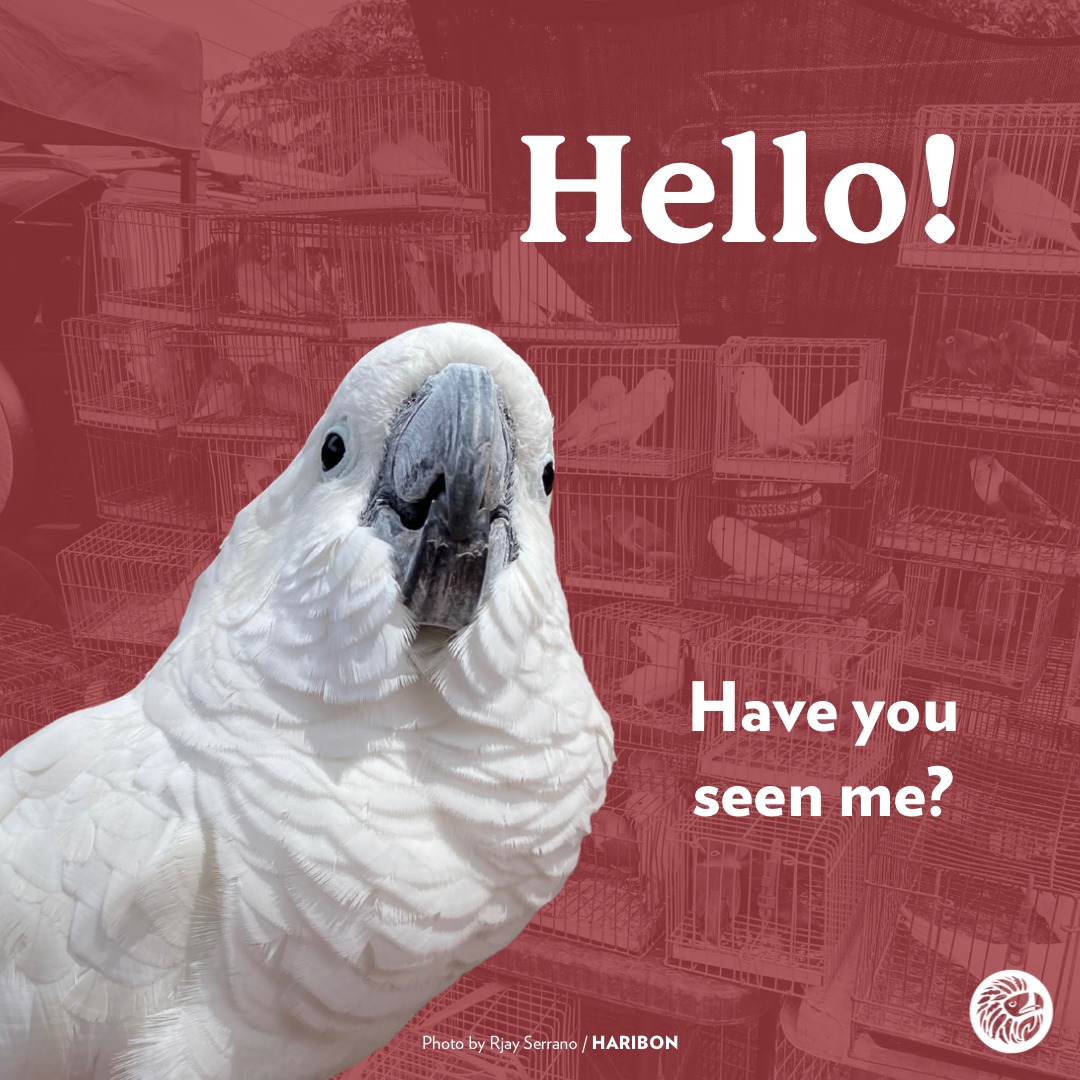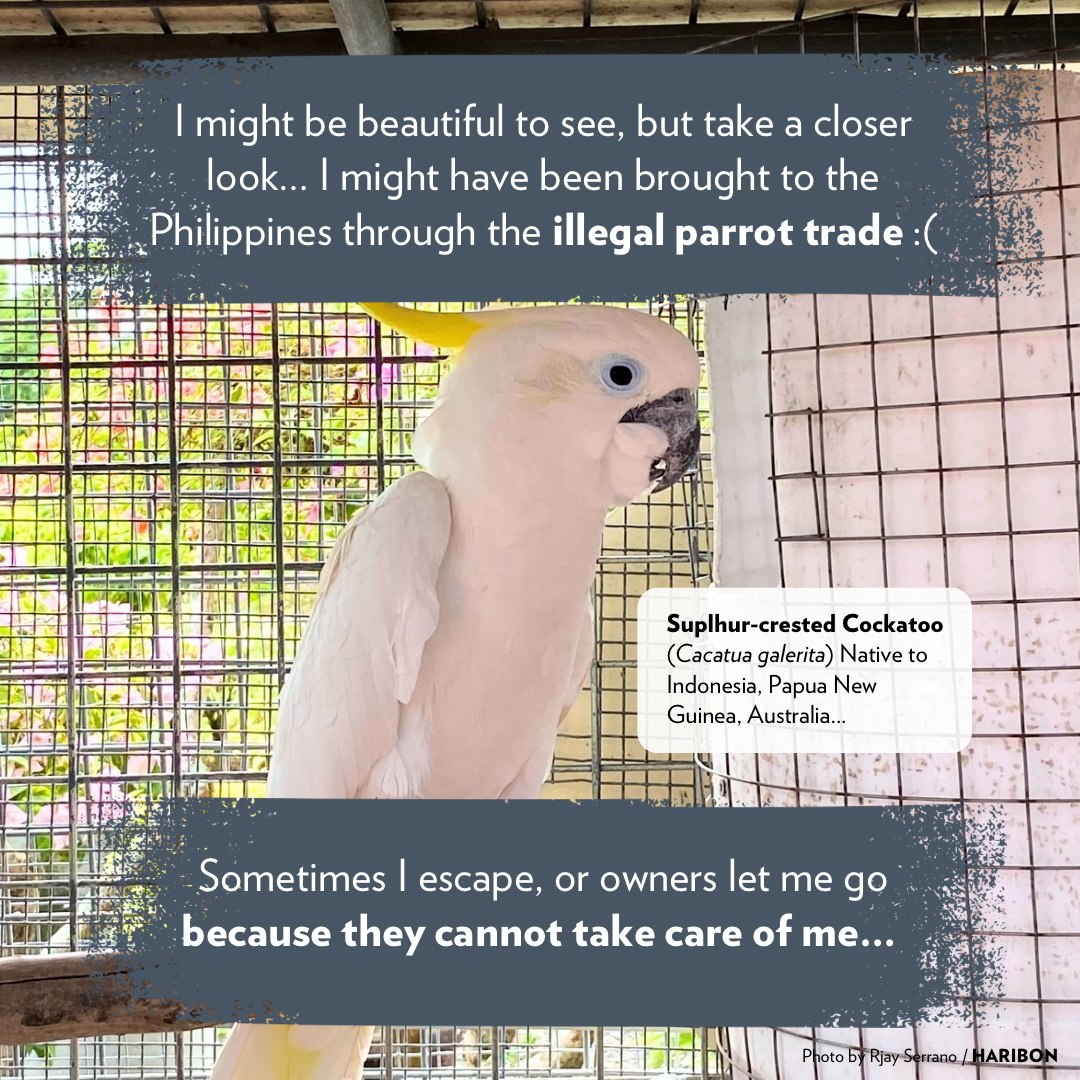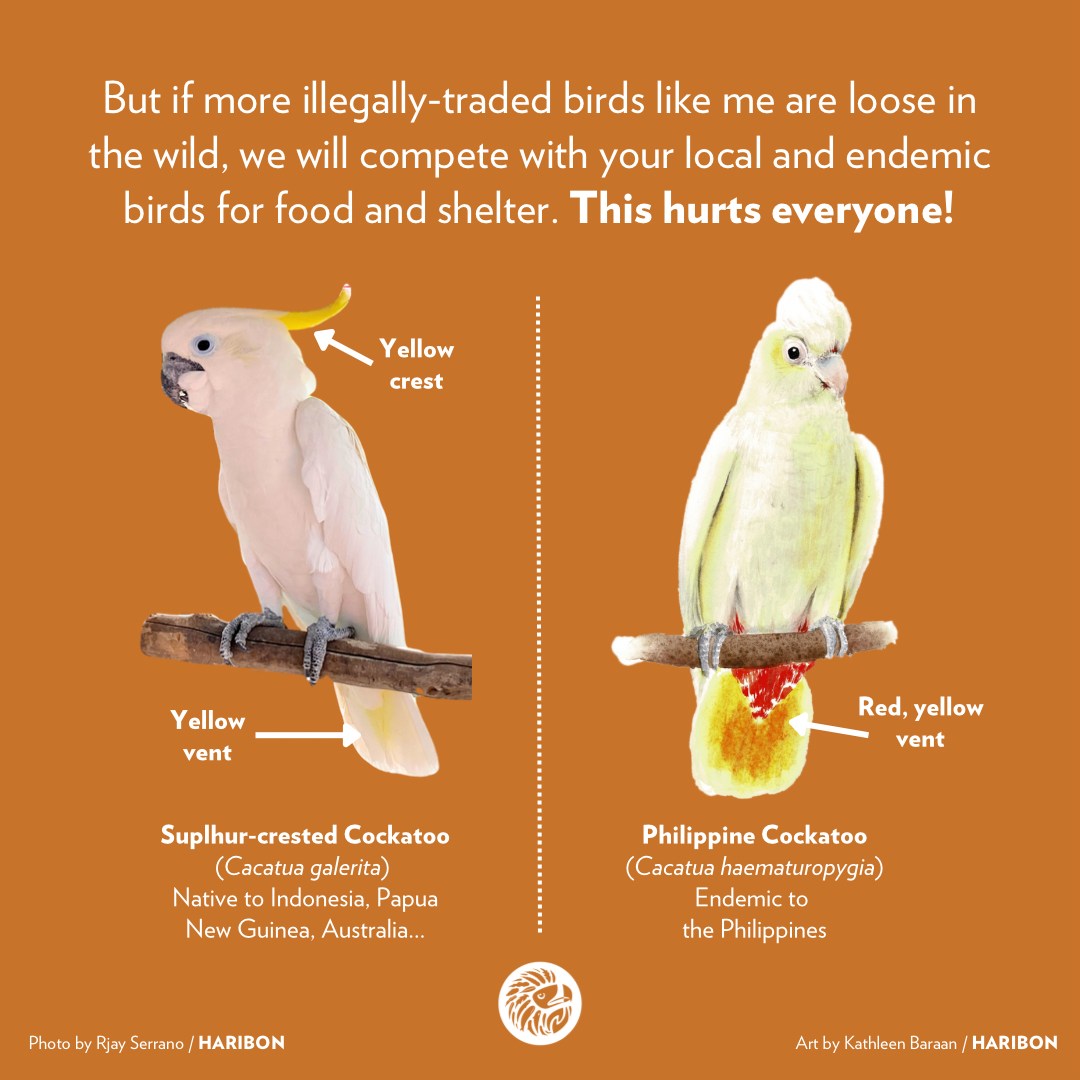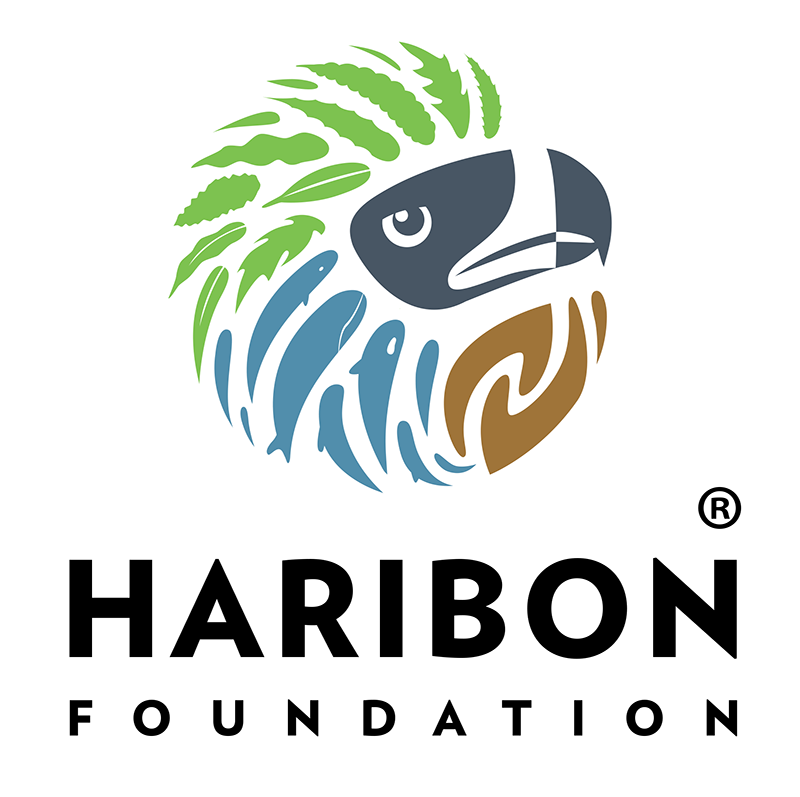
They may be beautiful to see, but take a closer look… they might be cockatoos not originally from the Philippines - and competing for food and nesting sites with local birds.
A flock of cockatoos in General Santos have been spotted by a photographer and posted online early this September. The photo shows five white cockatoos seen moving between branches. While their presence may be a fascinating sight, we warn that these birds could be escapees from the illegal parrot trade
Sightings like these are a serious cause for alarm because these birds are non-native to the country. If their population continues to grow, they could become an invasive species and have a devastating impact on our local biodiversity.
A flock of cockatoos in General Santos have been spotted by a photographer and posted online early this September. The photo shows five white cockatoos seen moving between branches. While their presence may be a fascinating sight, we warn that these birds could be escapees from the illegal parrot trade
Sightings like these are a serious cause for alarm because these birds are non-native to the country. If their population continues to grow, they could become an invasive species and have a devastating impact on our local biodiversity.
Here is why we need to be concerned
- Competition with native species - Invasive cockatoos would compete directly with our native and endemic birds for food, nesting sites, and other resources. This competition can severely threaten the survival of our unique and fragile local species.
- Property damage - These birds are known for their strong beaks and destructive habits. A growing population could lead to significant damage to wooden structures, electrical wiring, and other property.


- Refuse to buy wild-caught parrots. By not buying, you help break the chain of this cruel and damaging trade.
- If you see birds or other wildlife being sold, verify by looking for a Wildlife Farm Permit and/or Certificate of Wildlife Registration. Verify that sources of the wildlife are legal too.
- Report wildlife trade. If you see wild birds being sold as pets or encounter suspicious activity, report it to your local Department of Environment and Natural Resources (DENR) offices through their hotlines, email, or social media.
